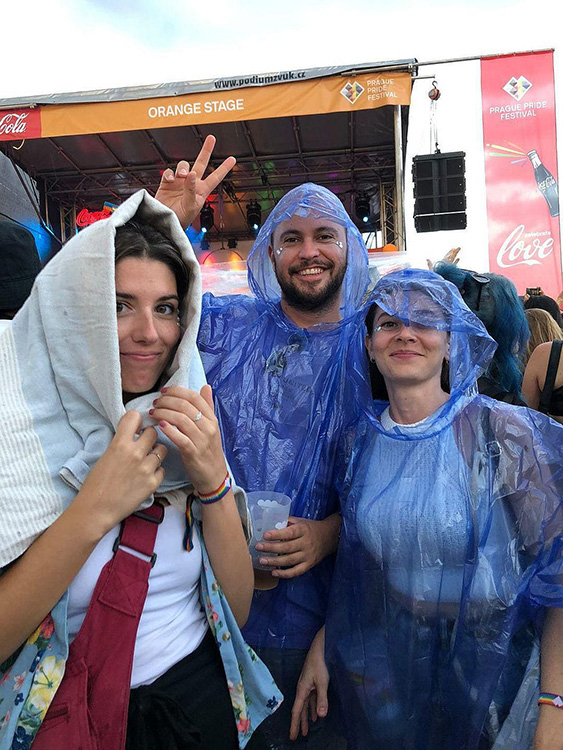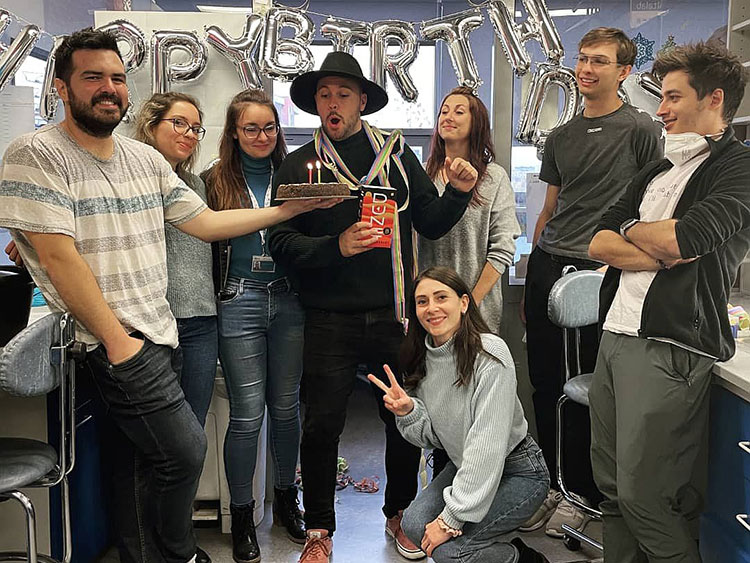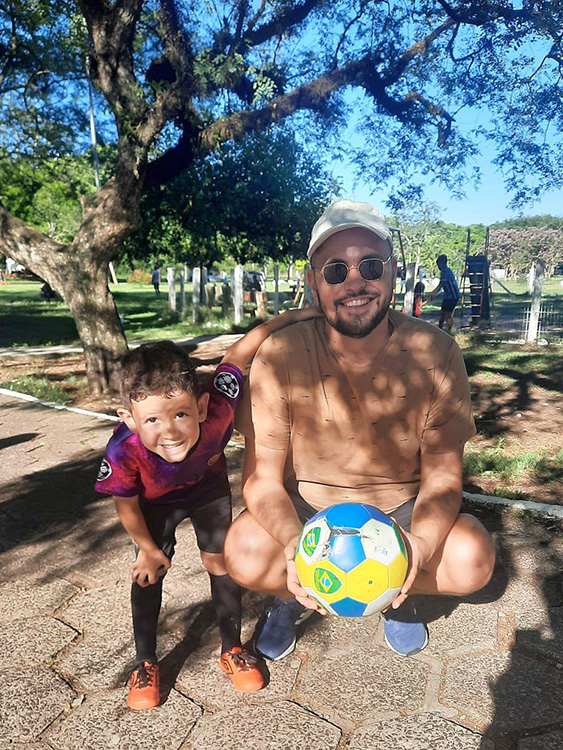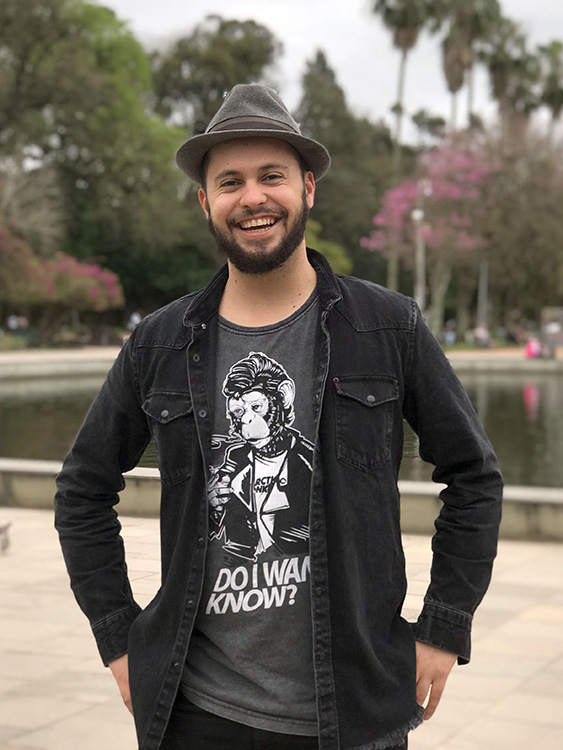Marcos Kulmann, a Brazilian PhD student, traveled from a distant continent to pursue science at the Institute of Molecular Genetics of the Czech Academy of Science (IMG), Prague. While searching for a suitable scientific position, Marcos Kulmann was intrigued by a tweet from Petr Svoboda, the head of the Laboratory of Epigenetic Regulations at IMG. The offered project seemed tailor-made for him. And so, after a long ten-month wait for a visa during the pandemic, the young Brazilian finally found himself in Prague.
What did you do before you’ve started a PhD?
Well, if I were to count, I’ve been in a serious relationship with science for the last 13 years! Wow, that makes me feel old, but this is how my saga started. It all began on the second day of my Bachelor’s journey when I joined a Virology Research Group.
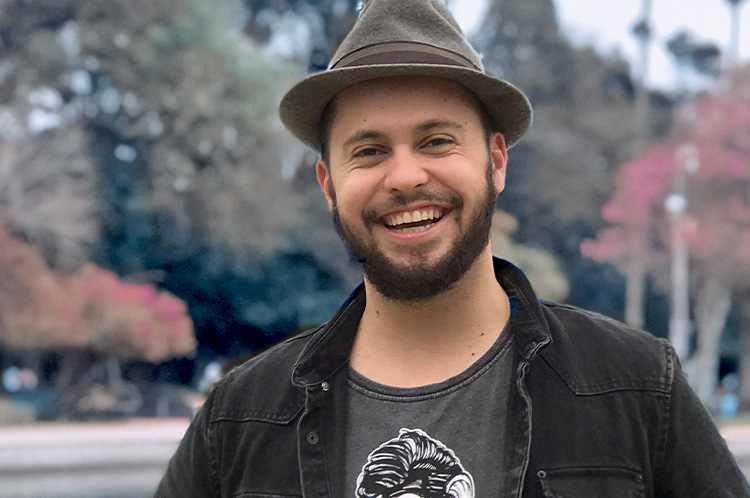
Were the beginnings difficult or did everything go smoothly?
I don’t know exactly why the Principal Investigator decided to give me a chance, but at the time I was incredibly excited to start making discoveries and learning about viruses. Needless to say, I also immediately started to mess things up in the lab, for instance opening culture media bottles outside of a laminar flow because I didn’t know the concept of sterilization. Turns out science was harder than I expected.
What drove you forward in science?
During my Bachelor, I’ve worked with pathogenic viruses, then moving to pathogenic yeasts and finally going to Barcelona to study pathogenic bacteria. I guess I wanted to work on something that could save people someday. For my final Bachelor project, we developed a mutant yeast that can modulate immune responses in a non-canonical way. Once their vesicles could be purified, we aimed to apply them as a vaccine strategy. I loved working on this project and we were awarded some prizes for it, which was extremely encouraging. Maybe I could become a researcher after all.
However, science funding in Brazil is a major issue and, if you aim financial stability, you better look for alternatives. Because of that, I started flirting with Human Assisted Reproduction and, immediately after my Bachelor in Biomedical Sciences, I became a full-time clinical embryologist. That was thrilling as I got to learn advanced micromanipulation of oocytes and embryos, and make patients really happy when the fertility treatment was successful and they got a baby.
Do you have any milestones in your scientific career?
My position became more interesting when I got promoted to Research Coordinator, which meant that 50% of my tasks would be research-oriented. At this point, I was going abroad to learn new techniques to implement in our center, writing grants, work on ethical committee applications, and training teams to develop multicentric clinical trials.
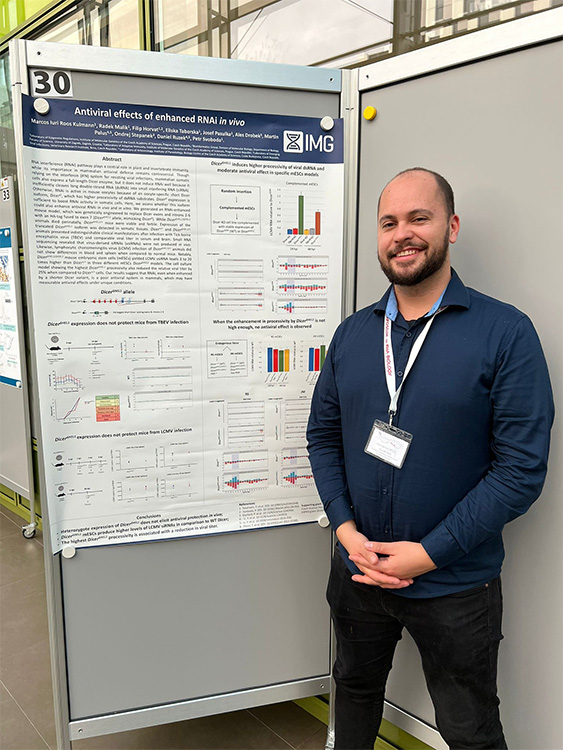
That’s cool, but how did you come across IMG?
Well, at some point, I realized that working full-time on research was a priority for me and a PhD would be a perfect opportunity to advance my training. While applying for different places, a tweet from Petr Svoboda, head of the Laboratory of Epigenetic Regulations, caught my attention. The open position seemed like a perfect fit for me and next thing I knew I was moving to Prague (not before waiting long 10 months for my visa during the pandemic).
Is there anything you miss from Brazil? And vice versa, what do you like more here than at home?
I definitely miss Brazilian weather, food and people’s warmth. On the other side, I love how organized and safe Czech Republic is. Additionally, it’s much easier to travel around Europe and visit other countries in comparison to South America.
What specific research are you engaged in?
I currently develop two main projects in the Laboratory of Epigenetic Regulations, at IMG. Both aim to better understand the RNA interference (RNAi) pathway, but from completely distinct physiological contexts. Firstly, I study whether the RNAi could be activated in mammals and function as an additional layer of immunity against viral infections. This antiviral strategy is employed by plants and invertebrates, however it was mostly overpowered by other pathways during vertebrate evolution. In mammals, the contribution of antiviral RNAi to immunity remains extremely controversial.
Secondly, I study the machinery for RNAi in mouse oocytes. These germ cells represent a unique adaptation in mammals: the microRNA pathway is mostly dispensable while the RNAi pathway is essential, which is the opposite of what happens in somatic cells. Mouse oocytes express an oocyte-specific short Dicer isoform, DicerO, which has higher processivity of dsRNA molecules, the substrate for RNAi. What we don’t know is how the other proteins necessary for RNAi adapted to the atypical regulation found in mouse oocytes and we aim to answer it by mutating these proteins in vivo.
“IMG provides a great structure for doing science.”
What scientific achievements have you accomplished during your studies?
So far, we have discovered that activating the RNAi pathway leads to antiviral protection in cells and in vivo. To get there, we experienced many ups and downs and we even had to change animal models, something extremely time-consuming. I’m also quite happy that our discovery has been selected for oral presentation in different conferences and I’m getting valuable feedback on how to improve our work.
From my second project, regarding the RNAi in mouse oocytes, we have been able to produce genetically engineered mouse models. These animals display oocytes expressing different isoforms of proteins involved in the RNAi and will be further analyzed. Also, I have been awarded a grant from GA UK (Grant Agency from Charles University) which will support this project.
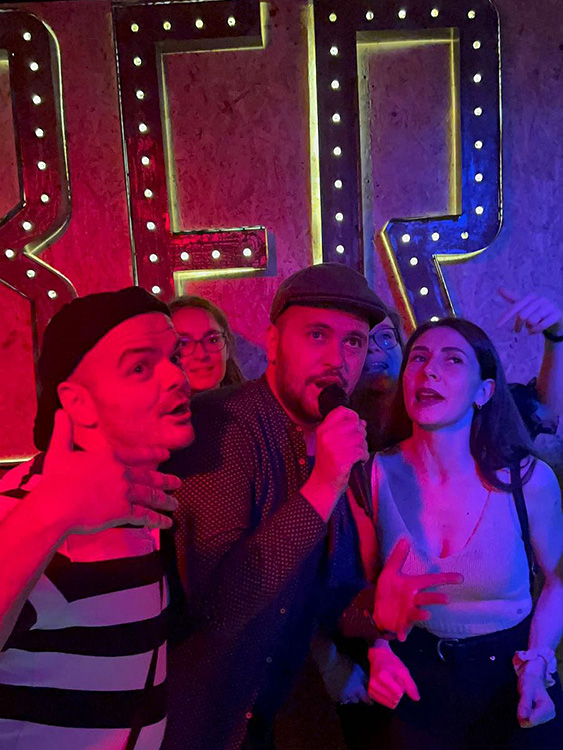
Do you plan to continue in this research direction?
During the PhD, yes. We still have a lot of work to do to finish up both stories. For life post-PhD, I would say I have much more affinity and curiosity about studying germ cells and early embryonic development.
Do you engage in scientific activities outside the laboratory?
Yes. I really enjoy going to conferences as it’s a great opportunity to develop new ideas and also receive valuable feedback on my projects. People around the world do such an impressive job and it really motivates me. I also love discussing science with friends whenever I can, because my puzzles (scientific projects) sometimes get too complicated and I need a break from them. In the meantime, one can have a little fun helping friends to solve their own puzzles.
What do you like about IMG?
IMG provides a great structure for doing science. I feel privileged in having access to state-of-the-art equipment and assistance from the Core Facilities. Moreover, PhD students have a salary, access to benefits and contribution to pension, support that it’s not necessarily guaranteed in other academic workplaces. Finally, labs have enough budget to develop meaningful and relevant science. These definitely have a great impact on the student’s success.
How do you like to spend time outside of IMG?
I love exploring Prague: wandering through its beautiful streets, discovering new coffee shops or trying new international cuisine. I also enjoy going to the movies, cool bars, pub quiz events and dancing classes. When the winter is coming and I’m too lazy, I like to stay home for reading or watching Friends, Sex and the city, The Office and Rupaul’s Drag Race on repeat.
Thank you and good luck!
